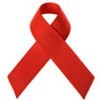At first glance, the article written by Maral Noshad Sharifi with extra reporting by editor Aaron Hicklin may seem purely sensationalistic. However, it does raise important issues.
The premise is that some young homeless men--desperate for shelter and food--intentionally get HIV to develop AIDS so they can qualify for government assistance:
And while it might seem counterintuitive, contracting the virus has made life easier for other young homeless men in New York City, who in return for developing full-blown AIDS gain a roof over their heads and basic services.
This cruel paradox -- having to get really sick in order to enjoy a better, more comfortable life -- has not gone unnoticed. “I have experienced people [who are] grateful that they have HIV,” says Sage Rivera, a research associate at the Centers for Disease Control and Prevention who has worked with hundreds of LGBT youth. “It’s sort of like a sigh of relief or an extra boost,” he says. "There are a whole bunch of different names for HIV within the [LGBT] community: ’the monster,’ ’the kitty,’ ’the scratch,’ ’the gift that keeps on giving.’ So people say, ’I have the kitty -- so now I can get my place. Now I can get hooked up; I can get my food stamps, I can get this, I can get that.’
“Other people say, ’I do not know what I would have done without the monster.’ I can think of five boys, automatically, who’ve told me this.”
And it’s not just those who already have AIDS who view it as a lifeline; some young men who test negative aspire to contract the disease as a way out of trouble. Rivera knows at least one man who planned to have unprotected sex on purpose, an attitude he sums up thus: “My life is not getting better. I need a helping hand, and it seems like the only way I can get a helping hand is by getting sick.”
The article does discuss the challenges facing homeless youth. For example, in New York City, there’s about 3,800 homeless youth, of which 45 percent are black and 28 percent identify as LGBT--many of whom fled to the city to escape antigay persecution.
Even if some young homeless men are deliberately getting the virus, does the article come across as too sensationalistic? And what about the concerns it raises about our health care system? Tell us your thoughts in the comments below.
To read the article, click here.
P.S. The term “full-blown AIDS” is used twice in the article. Although the intention when that phrase is used (even by people in the HIV/AIDS community) is to emphasize that a person is really sick, you either have AIDS or you don’t.







25 Comments
25 Comments